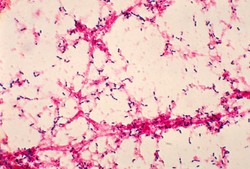As of 2014, this vaccination has been available in 117 countries [2].
Two inactivated vaccines are available in the United States for protection against Streptococcus pneumoniae infection. The guidelines in that country recommend that adults take both of them in the elderly years as the two products are not identical. The schedule for the shots will vary, and this has to do with when the patient began the series [1, 2, 3].
Specifically, the variation will depend on whether the injections occur prior to, at, or after the age of 65. It will also depend on the presence or absence of immune system compromise and other serious medical conditions. In some regions of the world, vaccination begins at the age of 50 as this is officially the onset of elderly years [1, 2, 3].
The use of both vaccines generates a better antibody response than will one alone [1].




 The Reality of Aspirinon 05/24/2021
The Reality of Aspirinon 05/24/2021
 An Old Microbeon 03/31/2021
An Old Microbeon 03/31/2021
 Coronavirus and Mental Illnesson 02/14/2021
Coronavirus and Mental Illnesson 02/14/2021
 Acute Ischemic Strokeon 12/25/2020
Acute Ischemic Strokeon 12/25/2020


Comments